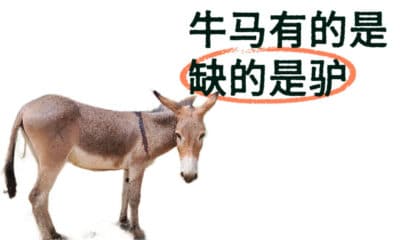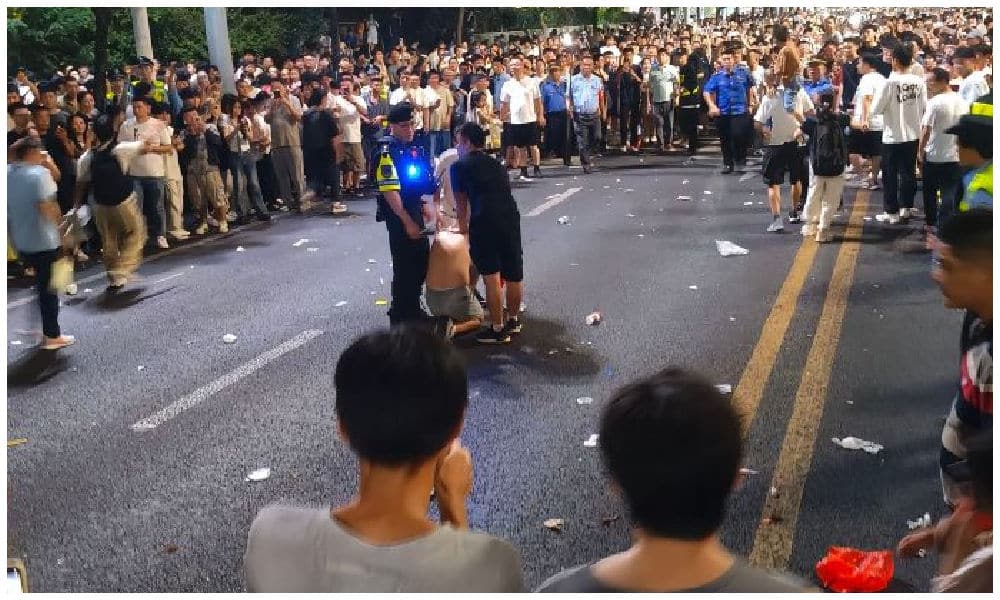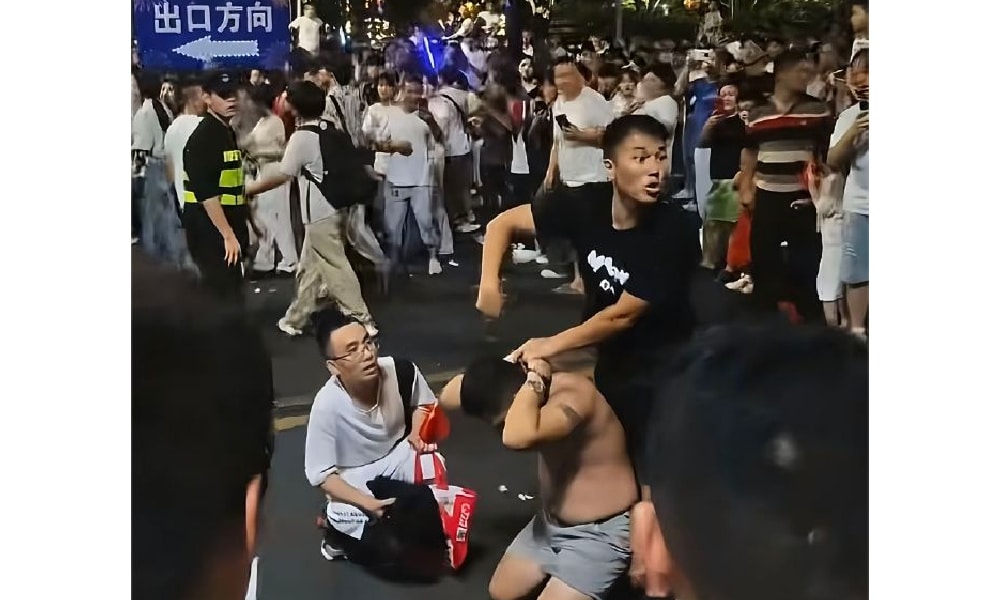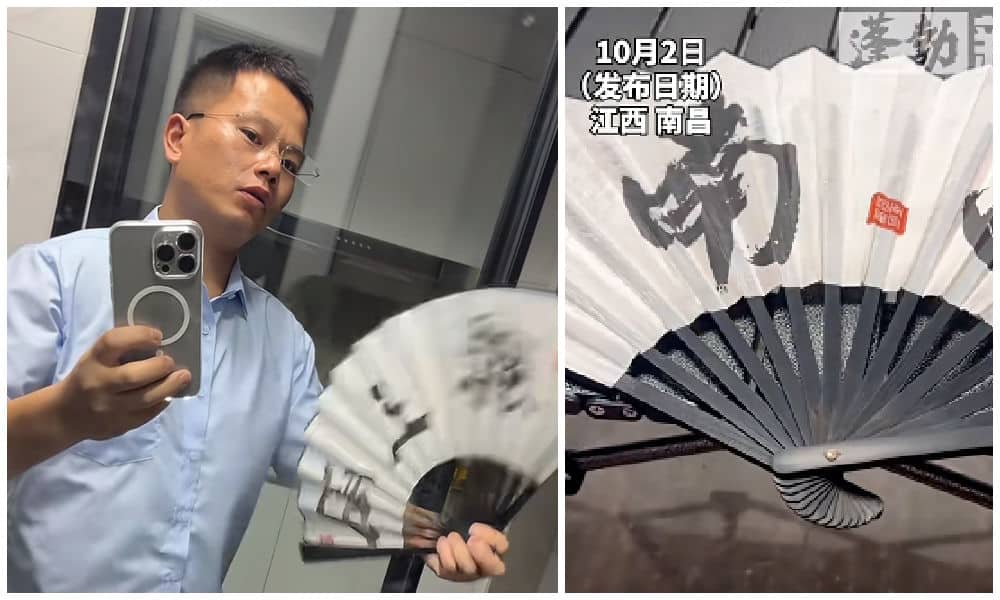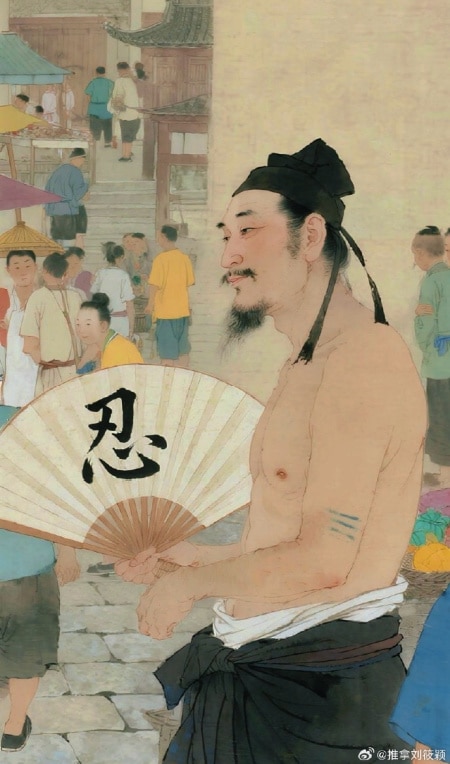A ‘thank you’ section in a PhD thesis has gone viral on Chinese social media these days, moving many netizens to tears.
The dissertation acknowledgments by Southeast University PhD student Zhong Jitao (仲济涛) started circulating on Weibo and beyond. The thank-you section was written by the Civil Engineering PhD candidate Zhong Jitao (仲济涛), who is now an associate professor at the Shandong University of Science and Technology. It was published in People’s Daily ‘Nightly Reading’ column before it went viral.
By now, the hashtag dedicated to the dissertation acknowledgment has been viewed over 170 million times on Weibo (#这篇博士论文致谢刷屏了#).
This is a translation of the acknowledgment (translation by What’s on Weibo*):
————————————————
1. Studying By Heart
“My hometown is a small rural village in the east of the Shandong Peninsula. When I was young, the village saw its first PhD graduate. In the depths of my carefree childhood memories, that was one of the few intense spiritual shocks.
When I attended my second year of high school, my dad fell ill and I experienced a sudden increase in stress. By the time I was a third-year student, I started to withdraw and I didn’t feel like going to university anymore. Later I couldn’t stand to see the disappointed expressions on my family’s face and I reluctantly entered an undergraduate program. I thought I would start working as soon as I graduated from college.
Later, my dad’s condition gradually improved, and I continued my studies as a graduate student. I thought I would stop studying as soon as I’d finish graduate school, and that I would hurry to find a job to share some of the burdens with my older brother. Eventually, I still continued my studies as a PhD student. If I look back on this curious turn of events, I feel guilty about my own selfishness and callousness. Step by step up to today, if the external factor was the relentless support of my parents and brother, behind their silence, then the internal factor perhaps was that one moment of spiritual shock.
2. My Brother as Father
The grass can’t repay the kindness of the warm sun. There are not enough words to thank my parents. Besides them, I’d like to express my thanks to my brother, who is seven years older than me. Perhaps it’s because he is so many years older than me that I’ve always felt that my older brother is somewhat like a father to me.
In the third year of elementary school, my brother faced the choice of getting into senior high school or getting into a vocational secondary school. If he’d go to senior high school, he would be able to get into university, but it would take several years of studying and several years of paying tuition fees. If he’d go to vocational school, there would be less tuition fees and he could start working earlier. It would also mean he’d miss out on the chance of getting into university. Based on my brother’s grades at the time, he could’ve picked either. But to alleviate the financial burden on our family, and mostly for the future studies of me as his little brother, my big brother, without hesitation, went to vocational school at the cost of his own future.
I felt that I would always remember the sacrifice my brother made for me at this time. But looking back on how life unfolded afterward, it was just the beginning of the many sacrifices my brother would make.
Because in the second year of high school, dad fell ill, and my brother, who had just started working, took on all the burden. I didn’t see my brother tossing and turning in bed during all of the sleepless nights, I didn’t see my brother take our dad to all the big and small hospitals in the province and in the city, I just saw my brother’s eyes sinking deeper every day, I saw how he was skin and bones, how his face was as pale as paper, how his hair was disheveled and ash-colored.
And while all of this was happening, I was studying in a warm and quiet classroom, because my brother had assumed all responsibilities.
3. The Lake and Sea Come Together
If I say that besides my dad, my brother is the number one guardian angel in my life, I must also acknowledge my wife and my former classmates.
As I prepared to do my PhD in Nanjing, my then-girlfriend, now wife, just completed her master’s degree. She had to make a choice. Going back to her hometown would mean going to a different place, coming to Nanjing would mean leaving her home. While the situation had me ruminating, my wife’s ticket to Nanjing dispelled all of my worries. We got married during the first year of my PhD. My wife worked every day, I studied every day. The faculty, the dining hall, and the home were our three frontline places. Every weekend, if we weren’t busy, we would go out strolling. If I was busy with studying, my wife would keep me company at the faculty, while also pretending to be a PhD student.
Living in a place far away from home, you’ll always run into people and situations that will upset you, and sometimes you have to deal with a sense of dispiritedness and disappointment. But all the grievances, frustrations, and depressions were dissolved by my wife’s comfort.
Ever since I met my wife, I found my ultimate trust and my home in her. She gave me inner strength, but also helped me grow a sense of responsibility.
4. Don’t Forget the Original Intention
Someone said, even if you can’t change the world, you also cannot let the world change the innocent you. This is perhaps my most lucky point – although time brings great changes and is unpredictable, and I have long ceased to be innocent, I am still me, still with a grateful heart.
Recently, on my train back to school, I was chatting with my brother on WeChat about our concerns regarding dad’s health. My brother replied to me saying: we are the ones to continue our parents’ lives and spirits. The best thing we can do to repay them is to live well and to keep on going. While reading that sentence on a train filled with snoring sounds at 2AM in the morning, tears started streaming down my face. I know my brother wanted to comfort me, and he also wanted to guide me in life. What I can do is definitely not let down those who love me and have placed their hopes in me, yes, I won’t disappoint them.
Time is like electricity, it slips through our fingers like sand. From starting my PhD to defending my dissertation, like a goose’s footprint in the snow – it’s already a part of my past. It’s useless to dwell on past mistakes, but we can still change the future.
In the end, I rarely drink but I will raise my glass; one to honor my parents and the bitter hardships they faced; one to my brother’s iron shoulder; and one to my wife and her steadfast loyalty and unfailing companionship.”
————————————————
Many people on social media comment how moved they are by Zhong’s words, and some share their own experiences.
“I’m also a PhD from Shandong Peninsula,” one commenter (@xiaolei雨田) writes: “While I was studying for my PhD, my mum passed away. I always felt guilty towards my parents, and like the author, I felt that studying for my doctorate was selfish, like I was only pursuing my own goals while the people who had silently supported me were passing away. After graduation, I was determined to go back to my hometown to help and take care of the family, making up for those years of regret.”
“This acknowledgment is heartfelt and resonates with so many people,” others write.
There are also those who, while praising Zhong Jitao’s dedication, also worry about the future prospects of other PhD candidates in China who come from impoverished families who have to sacrifice so much for one degree that might not even guarantee a well-paid job in China’s current-day competitive job market.
“This really moved me,” another commenter says: “It’s not easy to complete your PhD, and there’s always people who have your back and support you. When you feel like giving up, it’s their support that keeps you going.”
If you liked this story, you might also like “I Am Fan Yusu” (我是范雨素) (Full Translation) here.
By Manya Koetse
* Please note that this is a translation by What’s on Weibo, not all parts of the text are literal translations and that some sentences have been loosely translated.
Spotted a mistake or want to add something? Please let us know in comments below or email us. First-time commenters, please be patient – we will have to manually approve your comment before it appears.
©2021 Whatsonweibo. All rights reserved. Do not reproduce our content without permission – you can contact us at info@whatsonweibo.com.
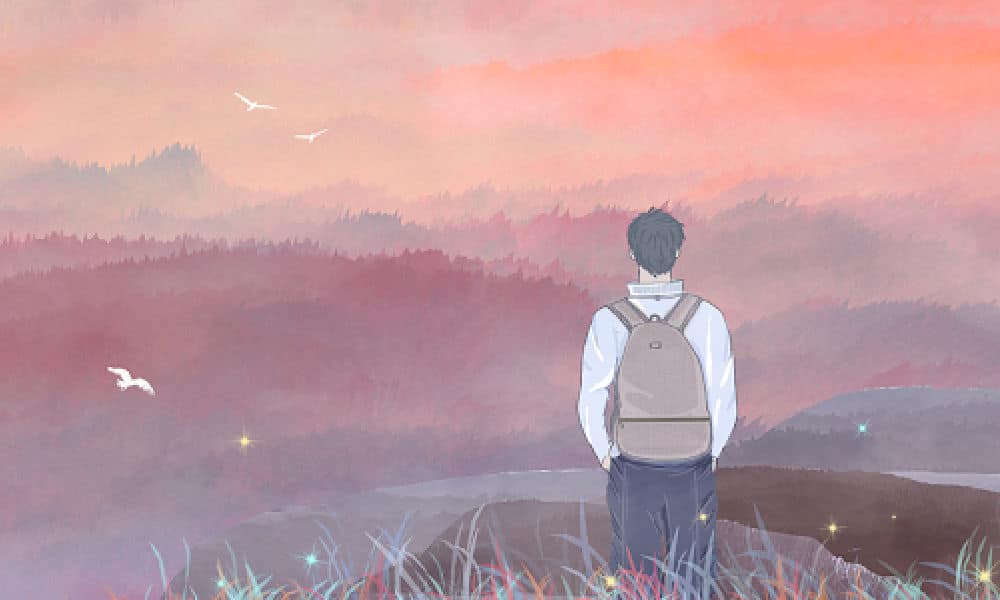

 China Memes & Viral3 months ago
China Memes & Viral3 months ago
 China Books & Literature11 months ago
China Books & Literature11 months ago
 China Insight5 months ago
China Insight5 months ago
 China Memes & Viral10 months ago
China Memes & Viral10 months ago

